As I prepare for our long-haul flight to the UK on Thursday, I contemplate what travel means to me. After our first whirlwind tour of Italy in 2000, I thought it would be too soon if I ever saw another church. Grandeur was overwhelming. There was no time to sit and soak it up before we went to the next place. I realised, after that trip, I could never see everything the world had to offer and decided that travel would be about settling myself into one location, immersing myself in all it had to offer.
Over the years, we have had the opportunity to do just that. Long periods in various locations around the UK, peppered with quick trips to the continent, satisfied that aspiration. Six-month work stints in Leeds one year, Coventry the next. An Air B&B in Downe, house swaps with wonderful people in a Devon village, a Hampshire estate, a grand home in Surrey, a house in Brittany, owners becoming friends for life. Experiencing life as a local wherever we go is my scene. We've collected a Waitrose card, an Oyster card, and National Trust membership along the way.
Could I become blasé? When you have done the 50 walks in Kent a couple of times, walked other local walks numerous times, and visited the same National Trust properties multiple times, you really get a sense of what it is to live there, and you realise it could become as routine as home very quickly.
My daughter, English husband and granddaughter live there so it's important for us to travel. However, Brexit and COVID have changed the travel playing field. Costs have skyrocketed. You have to read the fine print twice, three times, and as you age, you wonder how many more trips you might be able to do physically or financially.
I want to ensure that every day of this or any future trip counts. We can't take it for granted as we once might have.
Apart from reconnecting with family and friends, the novelty of travel is known to have serious cognitive benefits for our aging brain.
According to science, encountering a novel stimulus sets off a cascade of brain responses, activating several neuromodulatory systems.
Novelty stimulates our brain and forces new neural pathways and connections, keeping our brains healthy and functioning.
Instead of the rut of routines or habits, new experiences reignite curiosity and engagement in life, leading to fresh perspectives. We are more likely to try activities we wouldn't normally do at home. For example, we might go bungee jumping in New Zealand (not likely!) or try surfing in Hawaii, experiences that push boundaries and challenge us in new ways.
We immerse ourselves in new cultures, try new foods, and experience different landscapes. Our perspective broadens, imparting a greater appreciation for the world around us.
Finally, it facilitates new social connections and relationships.
We meet new people; some may share similar interests or passions, and others may challenge our worldview. All part of life's rich tapestry.
We return home rejuvenated and ready to tackle new challenges with a mountain of photos to revisit, friends to Facetime, and ideas for new trips.
We need to kindle a curiosity mindset to make the most of our travel experience.
Instead of waiting to be passively entertained as we travel, curiosity must be engaged. This crucial human trait drives us to seek knowledge and understanding about the world around us. It's what provokes us to ask questions, investigate, and experiment.
How can we be more curious as we travel?
1. Ask lots of questions: I love to talk to locals, ask for recommendations, and learn everything I can about the history and culture of the place I'm visiting. English history fascinates me.
As we hike around Winston Churchhill's Chartwell, I wonder about the numerous craters in the ground. I learn they are marks of unsuccessful German bombing raids aimed at the PM's country residence.
Another time, I wonder why walking paths are along the top of ridges across South England instead of an easier path lower down. I am told that pilgrims chose the high ground when they were making their trek because the low roads were muddy! That makes sense.
2. Try new things: Whether it’s trying new foods, visiting a museum, or taking a local dance class, trying new things is a great way to spark more curiosity to learn even more about the place you’re visiting.
Markets are my favourites. Seeing rabbits hung in the open for the first time in Oxford was a shock, but I've warmed to the odd and unconventional things people eat.
At a fancy restaurant, I ordered pheasant and was warned to look out for pieces of lead shot. My teeth found two.


3. Be present: Take time to observe your surroundings and be present. Take a walk, sit in a park, or people-watch to get a better sense of the place you’re in. I call it Sit and Soak.
While living the good life at a home exchange in Hampshire, I sat quietly in our favourite cafe in New Arlesford to people-watch. The Georgian village oozes Jane Austen. Little has changed since she departed. There is still a uniform - a Barbour waxed jacket or quilted Gilet carefully matched to a country-toned shirt, pants tucked into Hunter wellies and a posh accent. On market day, they flock to town for seasonal grouse or fresh pheasant at the butcher or local trout from the fishmonger. I swear I will see Mr and Mrs Darcy any minute now.
4. Get off the beaten path: Explore neighbourhoods and side streets for a more authentic experience.
I have a daughter who somehow finds the quirkiest things to do anywhere we go. If it weren't for her, our trips would be very touristy.
She constantly challenges me. We’ve driven to Europe in a right-hand drive car onto the left side of the road - Belgium for Christmas markets and to watch our granddaughter perform at Disney Paris. I’ll never get used to it. We’ve climbed mountains, explored the nooks and crannies of Central London as well as more sedate but fascinating pursuits like the Princess Diana exhibition or afternoon tea at Buckingham Palace.
Perhaps the most quirky is her local community's annual Santa race, where hundreds of Santas race over a mile on a cold December Sunday morning, a bizarre sight.

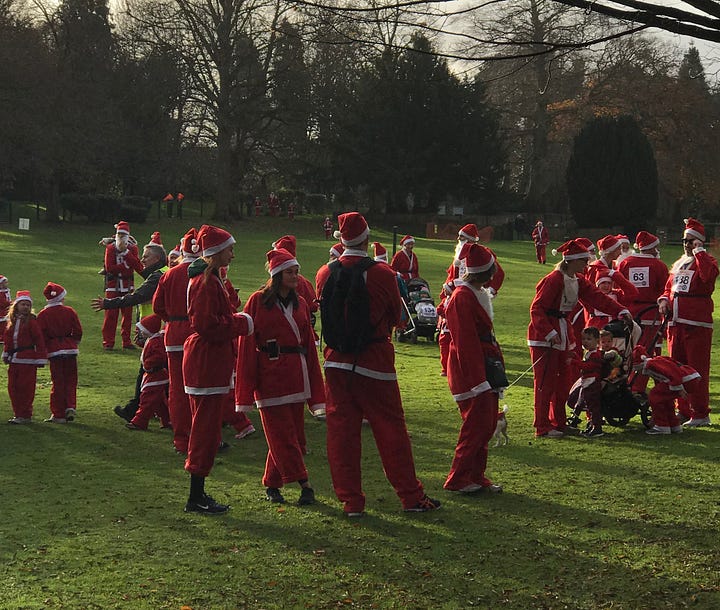
We will arrive in a few days to captivating Springtime. Seasonal delights like hikes in the Kent countryside through a sea of white apple blossoms, a carpet of bluebells or the Summer emerald green canopy of the woods await.
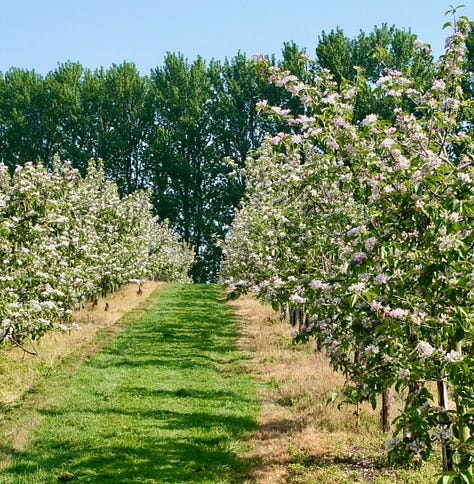
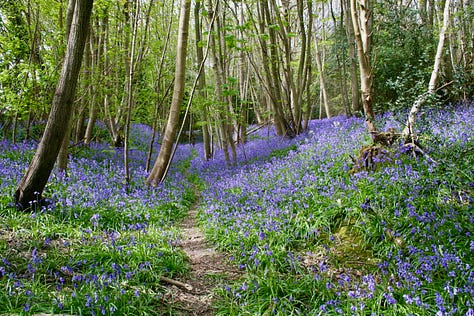
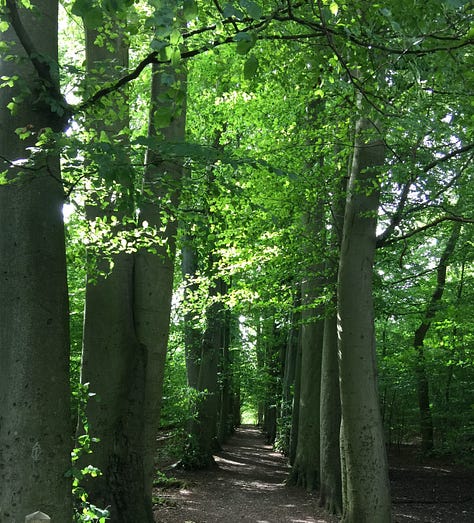
A coronation is probably the most novel event of this trip. A once-in-a-lifetime pageant. Can I do the crowds? Maybe a pre-coronation visit to town to soak up the atmosphere and a local Coronation street party with friends might be more my style.
Anyway, I loved this recent post by fellow Substacker, Weird Medieval Guys: No, the King of England doesn't own all the swans. I hadn't asked that question, but I'm pleased I know now!
My list also includes cold water swimming, bird watching, visiting a couple more Literary Legends' homes, spotting some street art in Shoreditch and a Peloton studio live ride with my favourite instructor Leanne Hainsby.
Stay tuned for reports.




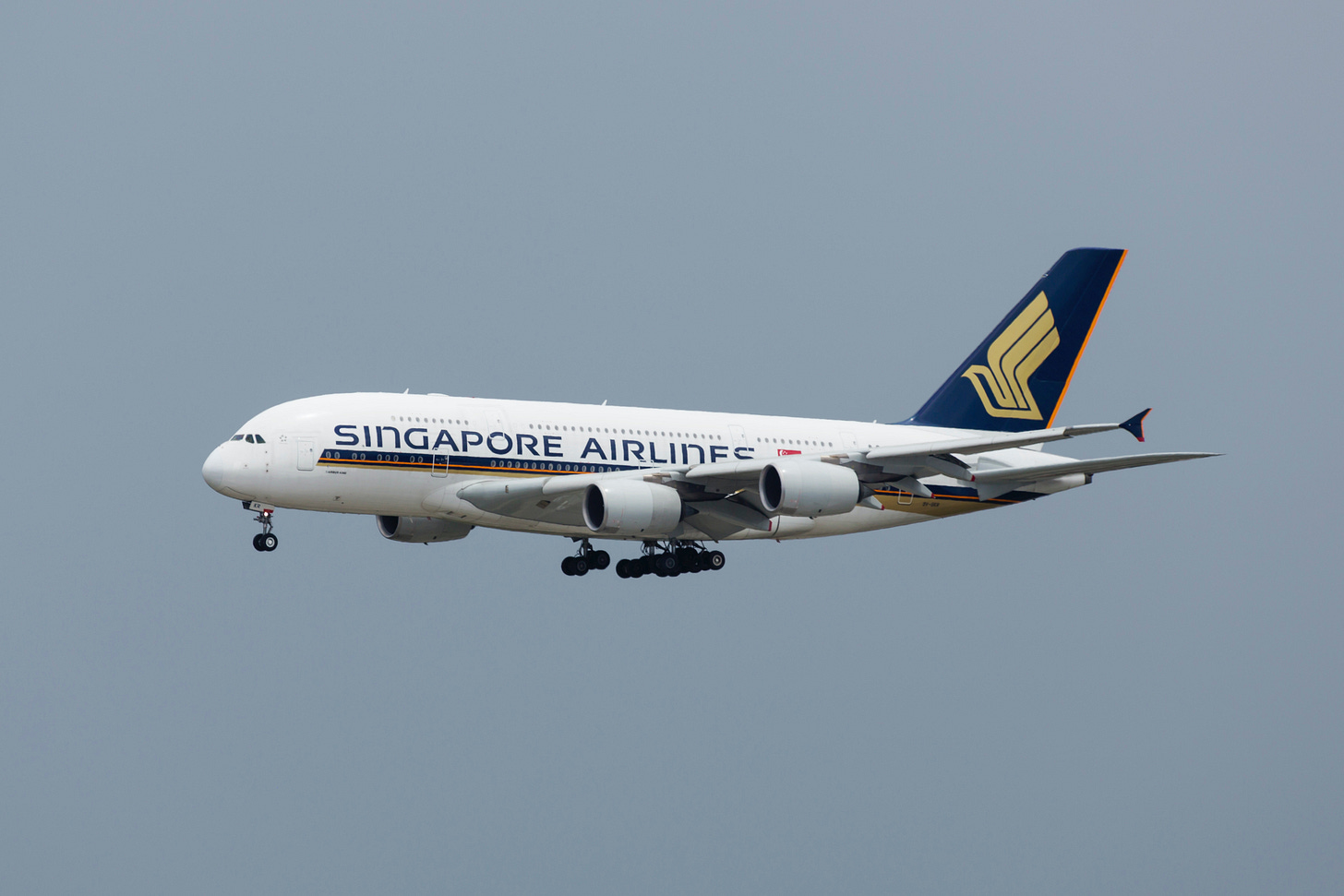
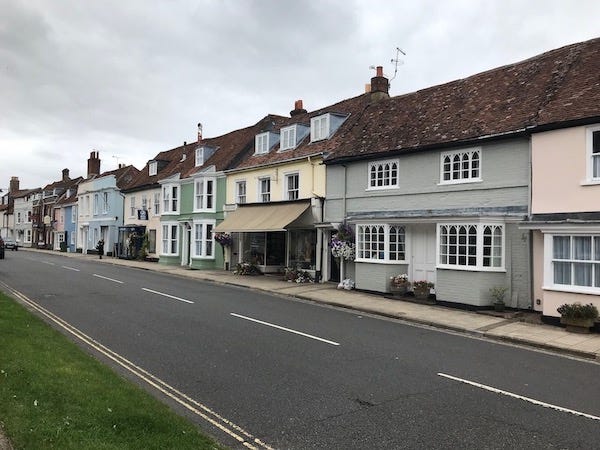
Great tips! I especially agree about being present. If you're spending the time and money to travel, immerse yourself! This one especially resonated with me as my wife is from England and we visited twice last year. 😊
Hi Robyn, loved your article. Curiousity definitely keeps our minds working and our feet moving! Thanks for sharing your experience about dining on pheasant. I will watch out for the buckshot!